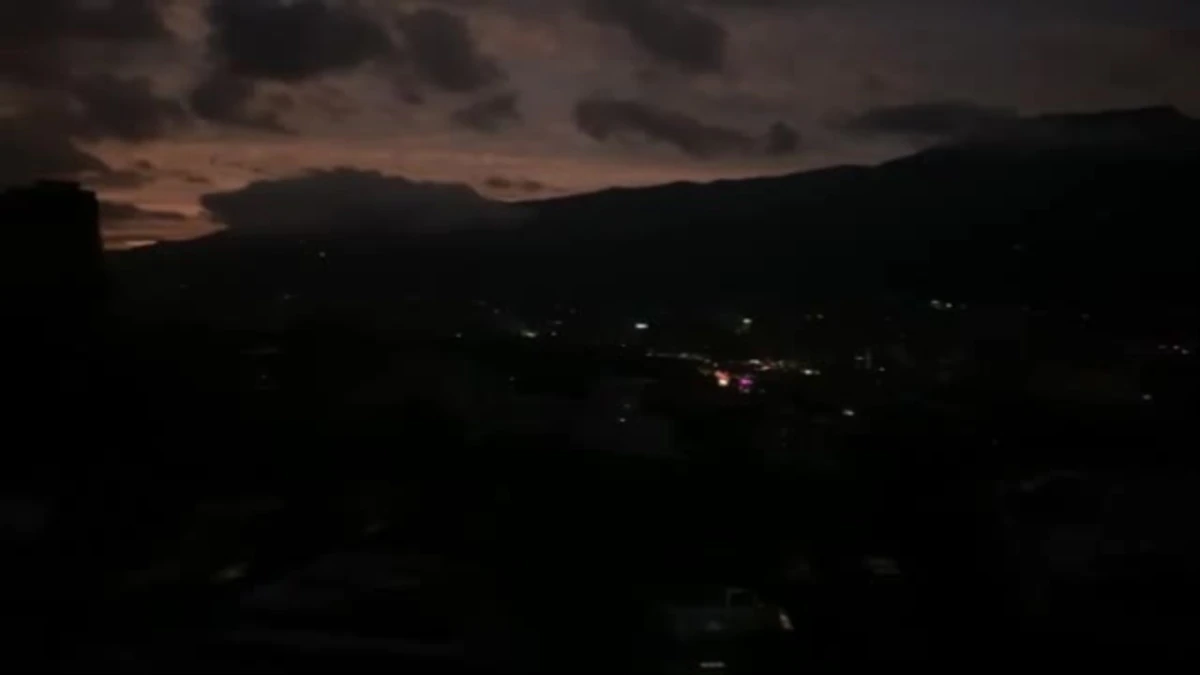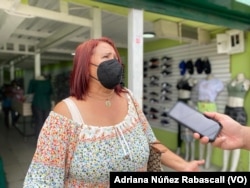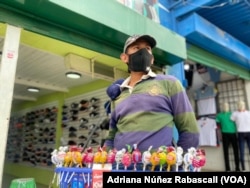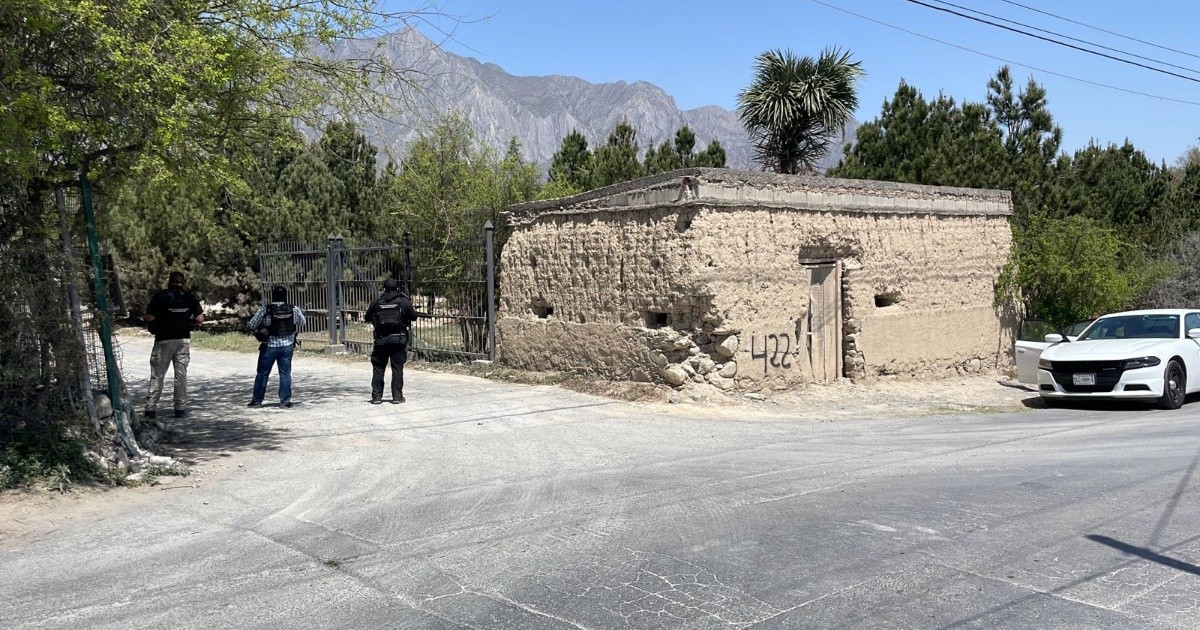Gisella Robles, a 59-year-old Venezuelan, lives under stress. To her daily worries about work, money or her family, she adds an unthinkable ingredient in most of the world: blackouts.
“It’s horrible, I don’t know what’s going on,” she said Thursday morning, as she waited for public transportation in western Maracaibo, in front of an intimate apparel store. Power outages of four or more hours abound in the city of El, capital of the most populous state in Venezuela, Zulia.
The interruptions of the electrical service, in reality, have not completely ceased in Venezuelan cities such as Maracaibo since the crisis in the sector in 2009, admitted by the then President of the Republic, Hugo Chávez Frías.
Since February, those affected say, the blackouts have been more frequent and extensive. They are surprising.
“You don’t have time. They can be in the morning, noon, as at night or early in the morning. It is not like before, when a rationing schedule was made official. People got ready”, details Gisella.
The Venezuelan State has been referring to these rationings for years under the euphemism of “cargo administration”. In Maracaibo, they occur by sectors and usually leave entire blocks in the dark for two to five hours, on average.
Gisella confesses exhausted. She can’t sleep well at night every time the power outages happen. The failures have already damaged an air conditioner, a refrigerator and a freezer in her home, in the popular neighborhood of El Gaitero.
“You don’t sleep well. One even gets in a bad mood, she gets sick. I have been sick with my head because of these heats, ”she indicates.
Temperatures hover around 35 degrees Celsius in Maracaibo, where humidity also rises to 70%.
The governments of Chávez and current President Nicolás Maduro imprinted a tone of secrecy and confidentiality on their reports on the electricity crisis. Government ministers and spokesmen often blame their political opponents and foreign powers, such as the United States, for serious failures in the service.
the digital diary the whistle cited sources from the state company Corpoelec to specify that there is low power generation in Zulia due to the failure and paralysis since February 23 of a turbine of the Rafael Urdaneta Thermoelectric Complex, the most important in that western region.
The blackouts are not confined exclusively to that state, however. Others, such as Táchira, Mérida and Trujillo, report blackouts that are as long or longer.
15 hour outages
Mérida, a region of the Andean mountain range of Venezuela, will have cuts of between nine and 15 hours a day by sectors, between two and three batches, as announced this week by the state company responsible for the country’s electricity service.
Thus, parishes such as Tabay, Domingo Peña and Milla will be without power between midnight and 3:00 am; 6:00 am and noon, and from 6:00 pm to midnight the following Monday, for example.
“The cuts will be scheduled, but more intense,” says Marcos Chourio, a young Venezuelan resident of that Andean state, to the voice of america.
While Mérida’s cold weather mitigates the effects of blackouts on the lives and routines of its inhabitants, they have never ceased. “The problem is all year round,” he says.
Marcos must interrupt his radio program for several minutes every time there is a blackout in his station’s sector, waiting for the gasoline and oil generating plant that they had to install to come on.
“There are seasons, like this one, where they increase. It affects us in working hours, in internet connectivity. There are affected services. Some stores that do not have a plant have operational and collection difficulties” from their customers, he explained.
Until this week, when Corpoelec published its program of service interruptions, Marcos and his family did not know when or for how long they would occur.
Faced with the rationing of so many hours that await him, he laments. She describes that, when the cuts are “severe”, there are those who prefer to sleep and work or honor their occupations only when there is light.
At night, without electricity, “it’s more annoying” to do chores at home, he admits.
chaos and oblivion
Venezuela has experienced 442,000 power failures since the so-called “Great Blackout” on March 7, 2019, according to the Committee of People Affected for Blackouts, a civil association coordinated by AD party leader Aixa López.
The spokeswoman denounced “chaos” in the electricity sector at a press conference in recent days. Between January and February 2022, she detailed, at least 5,000 power outages were registered in the 23 regions and the Federal District of the country.
López criticized the excuse of the Madurista government in the face of constant blackouts. “They hide behind an alleged three-year sabotage. That is not believed anywhere, gentlemen! ”, He claimed.
He also criticized the fact that Néstor Reverol, a retired general, is in charge of the Ministry of Electric Power in Venezuela. “He is not an expert in the matter, but he does not seek help either. So, that’s where the incompetence begins, ”he said.
The opposition to the Maduro government denounces that one of the causes of the Venezuelan electricity crisis is the centralized model of the state company in the sector. Another is that the ruling party, he says, did not foresee the drought of the reservoir of the country’s main hydroelectric plant, known as “El Guri”, which generates electricity for 60% of the country. It also denounces corruption in new and old works.
While the political tirade continues for years, José Cubillán, a 34-year-old candy vendor, has still not been able to repair the various appliances that have been damaged during the power outages in his home, in the Raúl Leoni sector.
“That’s very expensive and everything here is in dollars,” he laments, shortly after touting his products at La Curva de Molina, in western Maracaibo.
He fears that the blackouts will continue, without remedy. “Nobody cares,” she says.
Connect with the Voice of America! Subscribe to our channel Youtube and turn on notifications, or follow us on social media: Facebook, Twitter and Instagram.










